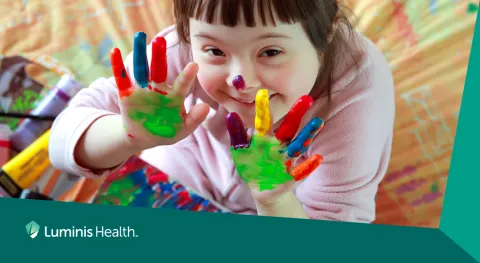While babies' brains are wired to naturally learn to speak and understand language, the process doesn't always go as expected. The same applies for learning to suck, swallow and eat. Our pediatric speech pathologists specialize in improving these issues.
Children with feeding disorders may have difficulty getting food to their mouth or keeping it from falling out. For example, babies who are born with a cleft palate often can't generate enough suction to nurse. Our pediatric speech therapists provide advice on managing feeding difficulties and ensuring your child gets enough nourishment to thrive.
Some children have difficulty making speech sounds or sound patterns. Sometimes the muscles in the mouth and face don't move the right way. Or the muscles in the tongue or throat are too weak. In other children, the brain has difficulty planning movements involved in speech. Your pediatric speech therapist can devise a treatment plan that's tailored to your child's needs. For instance, this might include having your child practice making certain sounds.
Children with language disorders have difficulty understanding or expressing thoughts or ideas. For example, children with preschool speech disorders may have trouble understanding what people mean when they nod. Or they may have a hard time naming objects or asking questions. We use a wide range of techniques to build your child's ability to talk and understand speech.
Our pediatric speech pathology team also works with children who have conditions that affect thinking. Brain injury, autism, attention deficit disorder (ADD) and attention deficit hyperactivity disorder (ADHD) are just a few examples. Using different approaches, we lessen the impact symptoms of these conditions have on your child's life. For instance, some kids with ADD have trouble taking turns and paying attention to others. We help your child practice and strengthen this set of skills.
If your child has a speech or language disorder, you're an important part of the treatment team. We help you set treatment goals and learn how to provide support at home. You're also able to watch treatment sessions. Our clinics feature private, kid-friendly treatment rooms equipped with a one-way mirror and speaker system.





